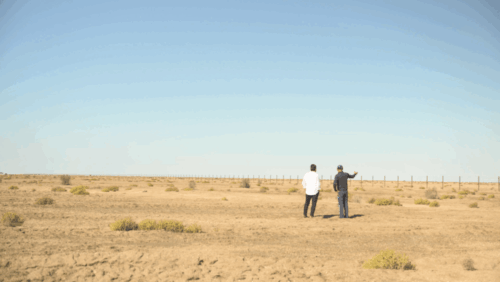Improving the Aral seabed ecosystem: a globally significant project launched in Kazakhstan
The Bulat Utemuratov Foundation is launching an environmental project to restore the Aral seabed ecosystem.

The Bulat Utemuratov Foundation is launching an environmental project to restore the Aral seabed ecosystem. Partners in the initiative include the University of California, Berkeley, the Executive Directorate of the International Fund for Saving the Aral Sea in Kazakhstan, and Korkyt Ata University in Kyzylorda.
The Aral Sea has become a symbol of one of the world’s largest environmental disasters. Its area has shrunk by 90 percent, and millions of hectares of salt marshes have formed on its dried-out seabed, being a source of toxic dust. Environmentalists estimate that tens of billions of tons of salt are concentrated here, carried by winds for thousands of kilometers, reaching the Arctic and the Himalayas. This dust, saturated with toxins and pesticide residues, poisons the soil, water, and air, threatening the health of millions of people and food security in many countries.
The Bulat Utemuratov Foundation’s pilot project is aimed at long-term improvement of the Aral Seabed ecosystem and field-testing the innovative E-seed technology from the University of California, Berkeley. It utilizes aerial seeding using drones that plant special self-burying seeds in biodegradable material. Application of this method allows for high speed and large-scale greening, as well as increased survival rates due to deeper penetration of seeds into the soil. The technology allows for rapid planting and coverage of large areas while minimizing labor costs.
“The Aral Sea is a wound on the planet that cannot be ignored. We are launching a project that will create a barrier against salt and toxic dust, improve human health, and contribute to the future of the entire Earth. The uniqueness of this technology is that it can be applied anywhere in the world, not only potentially transforming deserts into green oases but also promoting the restoration of burnt-out forests and increasing the effectiveness of reforestation,” noted Ainur Karbozova, Director of the Bulat Utemuratov Foundation.
A test planting on a one-hectare area will start in March-April 2026. If scientifically proven survival rates exceed 20 percent, planting will take place on 50 hectares of the dried Aral seabed as part of the second phase of the pilot project in 2027. The cost of the pilot project is 600,000 USD dollars.
“According to forecasts, and if all goes well with the application of the innovative E-seed technology, planting halophytes will contribute to positive changes in the formation of the ecosystem of the dried Aral Sea bed, specifically strengthening and restoring the soil structure, reducing dust and salt emissions within a certain radius of the test site. In 2028-2029, a growth in biodiversity is expected: an increase in the number of insects, birds, and small vertebrates, and a possible increase in air humidity. The long-term goal of the project is to stabilize the ecosystem within a radius of fifty kilometers or more, reduce air temperatures in the region by one to two degrees, and improve the microclimate by 2040,” said Rakhat Kurmanbayev, associate professor at Korkyt Ata University, Kyzylorda.
The project is implemented in close conjunction with initiatives advanced under Kazakhstan’s chair of the International Fund for Saving the Aral Sea (IFAS), which is chaired by President Kassym-Jomart Tokayev in 2024-2026. This plan includes the greenspace expansion on over one million hectares of the dried seabed.
